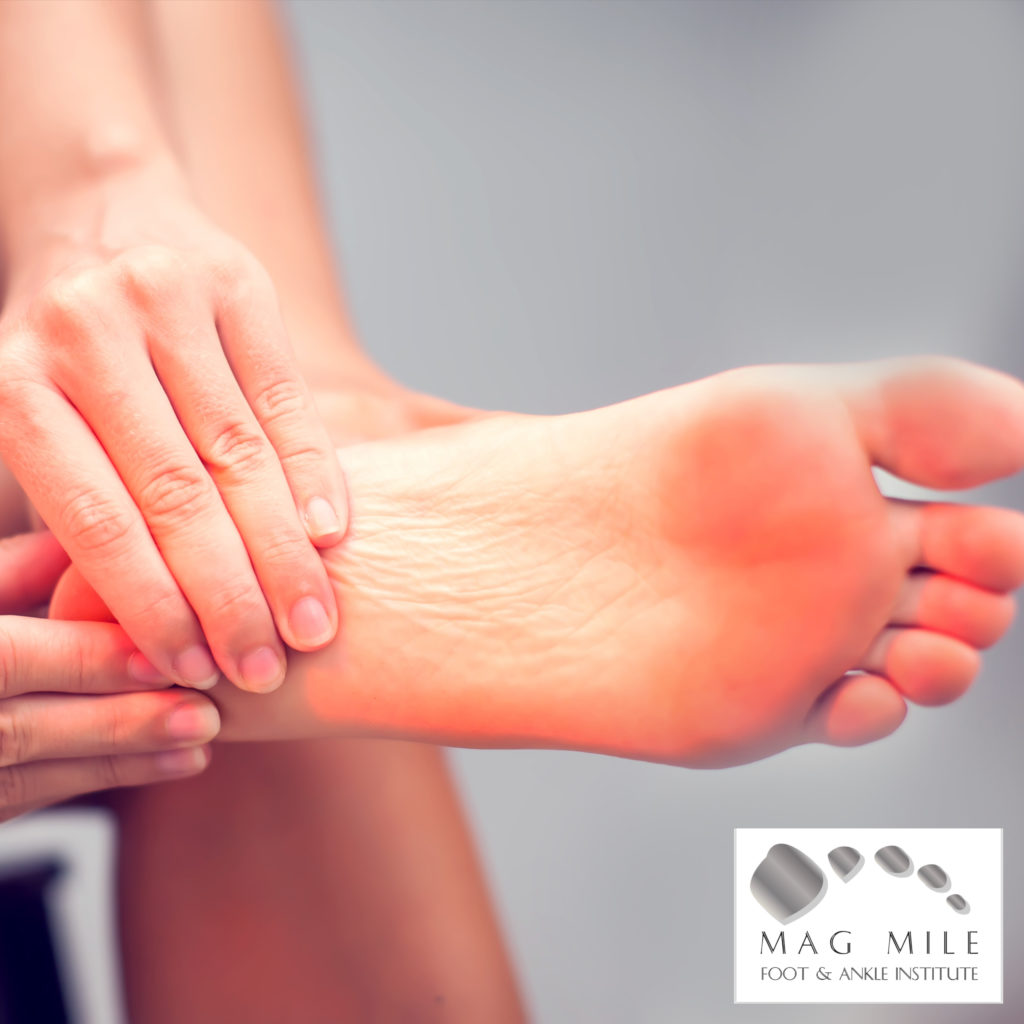You know that sudden sharp pain that hits when you start walking after sitting at your desk all day at work? Or the spurts of tightness and discomfort you feel in your heels after running or exercising? Unless you have injured your foot, the reason is usually a condition called plantar fasciitis.
Plantar fasciitis
A fairly common condition, plantar fasciitis is a degenerative disease that affects the thick band of tissue in the foot called the plantar fascia. This group of tissue spans across the bottom of the foot and is responsible for connecting your heel bone to your toes. When the fascia becomes inflamed, pain can occur, and if the trauma persists, plantar fasciitis can develop.
While more common in women, men can just as easily experience plantar fasciitis. It is typically seen in aging adults, competitive runners or other athletes who strain their legs and feet, and people with pre-existing medical conditions such as diabetes or those who are overweight.
How does it feel?
Rarely does the pain caused by plantar fasciitis feel dull. While it can occasionally, often the sensation is more a stabbing pain in the bottom of the foot, closer to the heel. Athletes or avid exercisers usually feel the pain after their workout, which is why they continue to partake in their sport, believing that their workout does not cause the pain.
Same with those who sit at a desk for long hours, or inversely, those who are on their feet all day.
What causes plantar fasciitis?
Normally, the plantar fascia supports the arch of the foot by absorbing the shock or pressure that results from walking or exercising. This fascia’s primary role. When repetitive movements begin to tear the fascia, the heel eventually becomes irritated, inflamed and painful.
Lifestyle is important
The way you live, your personal circumstances, and the choices you make can all adversely impact the health of your feet. The heel pain associated with plantar fasciitis can result from disability, negligence, physical build, older age and the kind of exercising you do. The condition can be hereditary, but what’s more influential is how you take care of your feet on a daily basis. Sometimes, it comes down to the stress you put on your feet, for instance if you wear ill-fitting shoes, or even the shape of your foot can put you at risk. People with flat feet, or a lower arch, tend to experience plantar fasciitis more than those with higher arches because weight is unevenly distributed in the feet. In these cases, pinpointing an exact cause of plantar fasciitis can be difficulty.
Now what?!
While many people choose to live with the condition, those who find it unbearable or too uncomfortable to deal with, usually seek medical advice or attention. The most common non-surgical treatments include:
- Orthotics. Custom-prescribed shoe inserts can support the arch and help with pain.
- Physical therapy. Engaging in exercises that stretch the plantar fascia and Achilles tendon.
- Night splints. Worn during sleep to help stretch the arch and calf of the foot.
For those who opt to go the non-traditional route, these particular and popular options may help:
- Injectinga steroid medication into the affected area can provide temporary pain relief.
- The sound waves from extracorporeal shock wave therapycan help with pain.
- Tenex procedure.Procedure that involves removing the scar tissue of plantar fasciitis.
- Surgery. When all else fails, sufferers can choose to have the scarred plantar fascia tissue repaired surgically.
As always, if your feet are hurting for any reason, make sure to call our Evanston office – Evanston Podiatric Surgeons at 847-475-9030, or Downtown Chicago office –Mag Mile Foot and Ankle Institute at 312-236-3507. Our care options for foot injuries and pain include some of the most cutting-edge procedures and technologies available!

